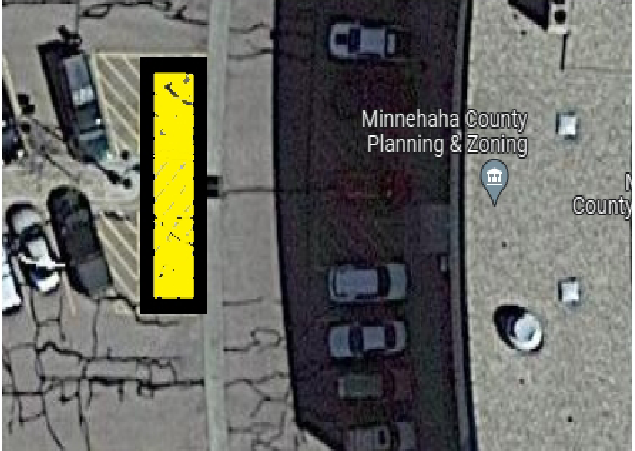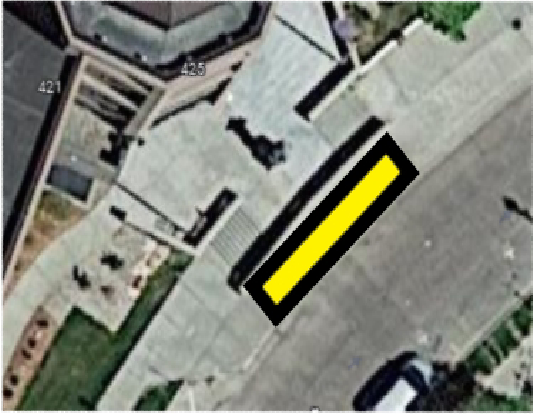Dakotans for Health sues Minnehaha County over new petition circulator permit guidelines
Following a decision by the Minnehaha County Commission to restrict the areas where petition circulators can get signatures in front of the county administrative building and the Minnehaha County Courthouse, Dakotans for Health have filed a federal lawsuit against the commission and Minnehaha County Auditor Leah Anderson.
Rick Weiland, the co-founder of the grassroots organization dedicated to healthcare and protecting the democratic process, said the action was unconstitutional.
“You’re looking at being boxed out of the highest traffic area in the state to collect signatures for no good reason,” Weiland told the Argus Leader Wednesday.

During the May 2 commission meeting, Anderson told county commissioners that the prior public policy for where political activity, such as gathering signatures for ballot measure petitions, could be conducted at the county administrative building was vague.
No one during the public forum on the policy spoke either for or against the change. Weiland said he was unaware that there was going to be a policy change during the meeting.
At the time, political activity could not be conducted within the building but there was no specificity as to where outside the building the petition gathering could happen. The other guideline was that petition circulators had to be courteous while participating in their political activity.
More: How Lucky Lady Casino found itself in the crosshairs of keeping Sioux Falls safe
In the past, petition signature gatherers have stood on the sidewalk by the doors of the building and walked through the parking lot to catch people.
“We’ve witnessed an increase in activity with those collecting signatures but also those who wish to share a message of opposition and we would like to have better control over the activities that take place on the campus,” Anderson said.
The designated areas passed by the commission include the sidewalk area in front of the courthouse not by the steps and an area in the parking lot on the west side of the administrative building away from the doors.
In an email to the Argus Leader, Anderson said the designated area is already a no parking zone and has painted hash marks. When the parking lot is resurfaced, she assured the Minnehaha County Facilities Department would restripe the area and there would be orange cones “for visual reinforcement.”

Additionally in the new policy guidelines, petitioners will have to check-in with the Minnehaha County Auditor’s Office prior to conducting any political activity so as to allow the “campus to permit the placement of safety markers and to verify space availability within the designated areas,” Anderson wrote.
She explained that because of the number of petitions currently gathering signatures, “there are many days that we could have four or more people at one time creating congestion at the west entrance doors. For several weeks this was happening on a daily basis.”
Anderson added that the zoning change was made for safety and accessibility for those going inside the building.
“I feel that everyone’s safety and convenience is best accomplished by moving those wishing to exercise their First Amendment rights to a safe area designated for their use, instead of inhibiting pedestrian traffic at the entrance or wondering [sic] throughout the parking lot,” she said.
More: Sioux Falls Women's March organizers vow to get abortion rights on 2024 ballot
Weiland takes issue with the new petition gathering zone, saying when he went to measure the location, it was 50 feet from the doors.
“If there are four or five people petitioning on four or five different issues that’s going to be pretty crowded,” he said. “The box is in flow of traffic. It’s not up against the building where mostly people will stand to collect people going into the door. I guess public safety is in the eye of the beholder here. I’m not going to accuse them of being reckless. The only thing they’re being reckless with is our democracy.”
Unknown if abortion petition is at the core of the matter
Of the four petitions currently being circulated for signatures, one would put abortion access on the 2024 ballot. The petition for the initiated constitutional amendment would re-establish a woman’s right to an abortion in the first trimester of pregnancy.
During the second trimester of pregnancy, a woman's decision to have an abortion can be regulated, but "must be reasonabily related" to the health of the pregnant woman, according to the amendment language.
Abortion could be regulated or banned during the third trimester, except in the case where the woman’s life or health is at risk, which "must be determined by the pregnant woman's physician according to the physician's medical judgment," the language states.
Currently, abortion, except when the life of the mother is at risk, is illegal in South Dakota, according to a 2005 trigger law that went into effect after the U.S. Supreme Court returned abortion access to the states in 2022.
More: Ellis: Why South Dakota voters could relive abortion battles of 2006, 2008
Anderson did not specify if the conflicts between petition circulators and those opposed to the political activity were connected to the abortion petition. But there have been situations where security has had to be contacted because of conflicts.
But Weiland said one of his Roe petitioners had been in conflict with an anti-abortion protester.
It’s not the first time abortion has been on the South Dakota ballot. In 2006 and 2008, voters rejected bans on abortion with overwhelming support.
The three other petitions currently being circulated for signatures are an amendment to establish open primaries, and an amendment and initiated measure to prohibit taxes on food.
'An infringement'
Weiland and Dakotans for Health filed the federal lawsuit in a South Dakota district court Wednesday asking for a temporary restraining order, a preliminary injunction and a permanent injunction stopping the county from enforcing the new policy, according to court documents reviewed by the Argus Leader.
In the documents, Dakotans for Health argue the policy violates political speech in public spaces.
“Based on the Google Maps’ measuring feature, the new policy prohibits speech in 99.3% of the outdoor space that was available for First Amendment activity before the new policy was implemented,” according to the court documents.
More: Lincoln County commission lacks votes to create CO2 committee
“It jeopardizes our ability to collect enough signatures to get on the ballot,” Weiland told the Argus Leader. “The whole process of going out there and asking people in a state as dispersed as South Dakota, it’s hard, it’s grueling. Obviously, it can be done and it has been done.”
He added that Dakotans for Health were confident that the court challenge would be successful.
Correction: This story has been updated accurately clarify some of the language used in the petition currently being circulated for a constitutional amendment seeking to establish a woman's right to an abortion.
This article originally appeared on Sioux Falls Argus Leader: Advocacy group sues Minnehaha County for political activity guidelines
